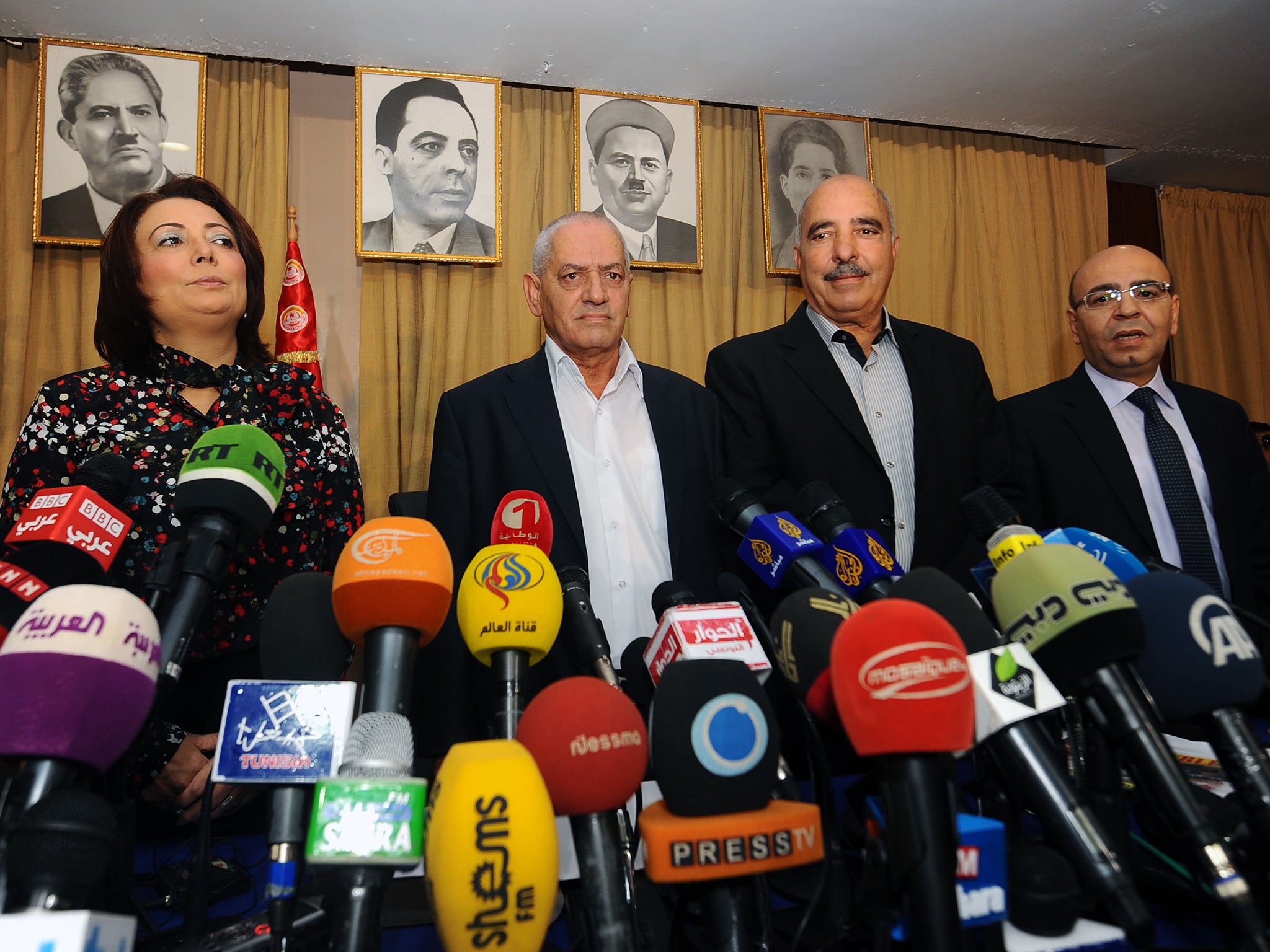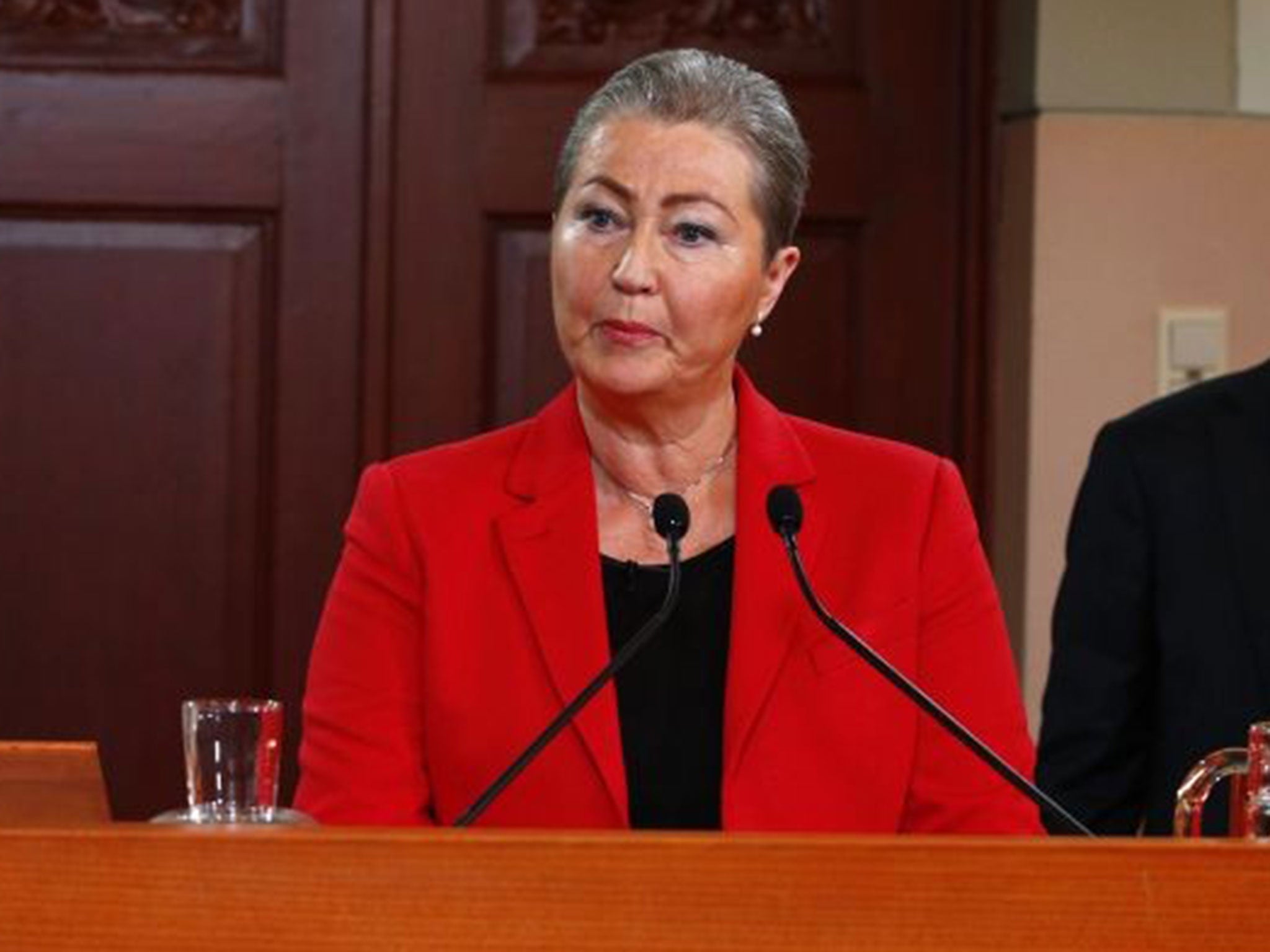Nobel Peace Prize 2015 winner: Tunisian National Dialogue Quartet awarded honour
The prize is a huge victory for Tunisia

Your support helps us to tell the story
From reproductive rights to climate change to Big Tech, The Independent is on the ground when the story is developing. Whether it's investigating the financials of Elon Musk's pro-Trump PAC or producing our latest documentary, 'The A Word', which shines a light on the American women fighting for reproductive rights, we know how important it is to parse out the facts from the messaging.
At such a critical moment in US history, we need reporters on the ground. Your donation allows us to keep sending journalists to speak to both sides of the story.
The Independent is trusted by Americans across the entire political spectrum. And unlike many other quality news outlets, we choose not to lock Americans out of our reporting and analysis with paywalls. We believe quality journalism should be available to everyone, paid for by those who can afford it.
Your support makes all the difference.
The Tunisian National Dialogue Quartet has been announced as the 2015 winner of the Nobel Peace Prize.
The Norwegian Nobel Committee honoured the Tunisian democracy group with the prestigious honour “for its decisive contribution to the building of a pluralistic democracy” in Tunisia following its 2011 revolution.
“It established an alternative, peaceful political process at a time when the country was on the brink of civil war,” the five-member committee said in its citation.
The quartet is comprised of the Tunisian General Labour Union; the Tunisian Confederation of Industry, Trade and Handicrafts; the Tunisian Human Rights League; and the Tunisian Order of Lawyers. Kaci Kullmann Five, the chairwoman of the Nobel committee, said the prize is intended to encourage the Tunisian people, “who despite major challenges have laid the groundwork for a national fraternity which the committee hopes will serve as an example to be followed by other countries”.
Houcine Abassi, secretary general of the Tunisian General Labour Union, said: “It's a prize that crowns more than two years of efforts deployed by the Quartet when the country was in danger on all fronts.”

Angela Merkel had been a favourite for her decision to welcome hundreds of thousands of refugees fleeing persecution in Syria and other countries into Germany.
The German Chancellor appeared on a political chat show on Thursday evening to defend her actions over the refugee crisis, where she insisted it was her “damned duty” to assist those in desperate need.
Rev. Mussi Zerai, an Eritrean priest who helps coordinate rescue missions for migrants crossing the Mediterranean, was also considered to be a contender, along with the imprisoned Saudi blogger Raif Badawi, who has become a symbol of the fight for freedom of speech.
John Kerry, the US Secretary of State, and his Iranian counterpart Javad Zarif were thought to be possible candidates for their work on the Iran nuclear deal.
Pope Francis was also among those tipped for this year's award, though the committee has been reluctant in the past to consider popes.
Malala Yousafzai, 18, became the youngest ever winner of the Nobel Peace Prize in 2014. The Pakistani activist, writer and survivor of a Taliban attack on her life was jointly awarded the prize with the Indian child rights campaigner Kailash Satyarthi.
Additional reporting by agencies
Join our commenting forum
Join thought-provoking conversations, follow other Independent readers and see their replies
Comments